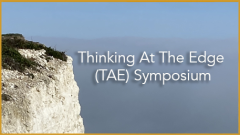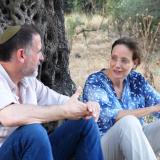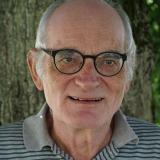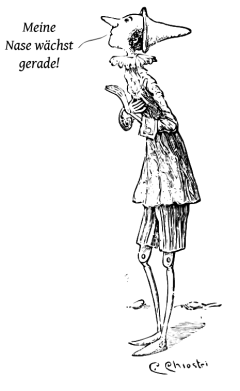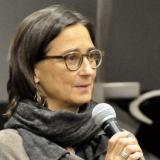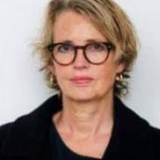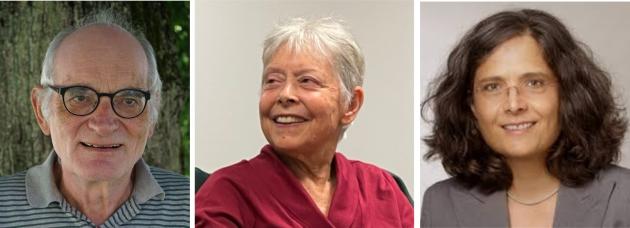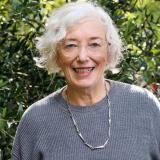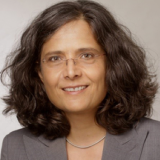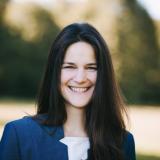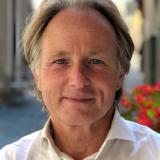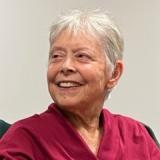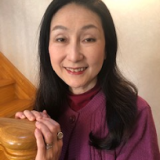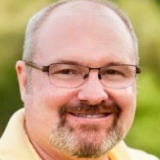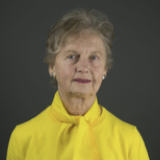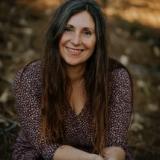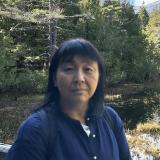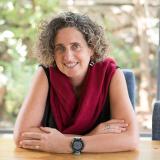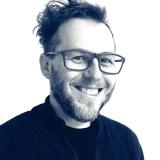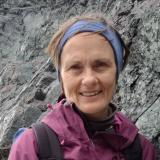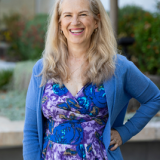Your Hosts
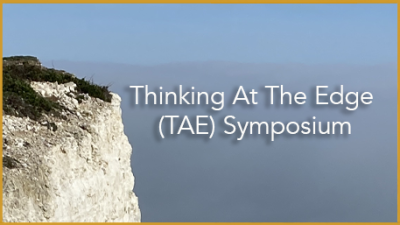
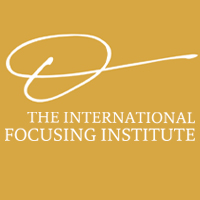
Where & When
A confirmation email will be sent immediately after you register confirming your registration. Please check spam/junk/promotions if you don't receive an email. Closer to the event start, further information will be emailed.
Register for the Recordings for the Symposium which are available through September 4, 2025
(Registration will remain open through August 4, 2025)
Thinking at the Edge (TAE) Symposium
April 4-6, 2025
Exploring Experiences and Applications of TAE
TAE has a social purpose. We build our inter-human world further. It is not true that merely developing as individuals will somehow change the patterns in which we must live. We need to build new social patterns and new patterns of thought and science. This will be a mutual product no single person can create. -Eugene Gendlin, Introduction to Thinking at the Edge
A NEW KIND OF TAE GATHERING
This symposium is meant as a chance for those who have at least a basic knowledge of TAE to share your knowledge, your insights, your enthusiasm, your questions and your edges with other attendees. We will have chances for informal TAE-based conversations or partnerships. Those who do not know TAE are welcome to attend, but should be aware that this symposium will not include any direct teaching of the TAE steps.
A BIT ABOUT THINKING AT THE EDGE (TAE)
Thinking at the Edge (TAE) is a systematic way to think about our world and ourselves by directly referring to a felt sense. The TAE process starts from a knowing for which we don't have words yet. The words and concepts that we know from public life tend to paint with a broad brush; public language seldom captures precisely what we are experiencing. The steps of TAE help us to develop a fresh use of language, to find just the right words which truly fit what we want to say. We learn through TAE to let words emerge gradually from the felt sense.
Then, from our unique expression, TAE helps us to find ways to express our knowing in generalized terms as well, so that our insights can be communicated to others. In this way, our work in TAE can open new possibilities not only for ourselves but for others as well.
You can read more about TAE here: focusing.org/tae
SYMPOSIUM ATTENDANCE IS OPEN TO ALL
It is a time for:
- teachers of TAE to share the insights they’ve gained about how best to teach TAE
- practitioners of TAE to share about their projects
- teachers and practitioners to share their insights into how TAE affects their Focusing practice
- all participants to share time together in small groups or TAE partnerships
- all participants to explore the meaning and potential of TAE for our personal lives as well as for society
THE SYMPOSIUM WILL FEATURE:
- 90-minute workshops offered by TAE teachers
- 15-minute presentations by TAE practitioners
- Panels discussing topics relevant to TAE
RECORDINGS
All sessions will be recorded. Recordings of all sessions will be made available within twelve hours of the end of the session (except in the case of technical difficulty). You will have access to recordings of all sessions through September 4, 2025.
PRESENTERS
Dana Ganihar and Baruch Brenner - TAE and The Art of Living
How to freshly think our lives?
From the Focusing process, we already know that there is “more” to everything we perceive. We also know that it’s possible to open a “living edge” and, from it, carry forward a new understanding that is more intricate than anything we’ve known before. From TAE (Thinking at the Edge), we learn that every area in which we have extensive experience contains unique knowing specific to us. This knowing can be explicated, so it won’t be lost within “public language.”
What would happen if we used TAE steps to rethink our life journey? How can we freshly think our lives? What are the subtle movements we can work with to start this process?
This workshop is part of a broader initiative of the Shakio Institute: TAE and the Art of Living. This process explores how TAE can be organically applied, not just to a to a project or specific expertise, but also to the unique, deep wisdom from which our life is being created.
TAE and the restoration of Humanity
How can TAE steps restore our perception of what it means to be human?
Being human is more than what we think it means. We have a "picture" or "understanding" of what it means to be human. This picture is often unconscious; we hold it as a "self-evident" image.
The problem is that this picture is usually saturated with public understanding; it can very painfully narrow what it means to be human.
How can we think anew about the meaning of being human based on our own experiences? How can first-person processes help heal this painful narrowing?
One of the goals of Shakio Institute is to develop ways in which a person can transform their perception of the Self through the steps of TAE. This transformation has implications for how a person understands their life as a living process which emerges from the unknown. It is a practice that enables anyone seeking transformation in their life—regardless of their culture, tradition, beliefs, or practices—to refine their perception and take a significant step forward in their life journey.
Dana Ganihar, M.Sc. is a Focusing Coordinator since 2007. Over the last couple decades she has led numerous workshops and seminars exploring the work of psychologist and philosopher Eugene Gendlin. Dana has initiated cooperative research exploring the potential impact of Focusing and TAE on diverse fields such as biology, architecture, creative writing and religion, in institutions including the Technion, Bar Ilan University and Tel Hai College.
Baruch Brenner is an Israeli theater director, actor, singer, teacher, focusing trainer and an ordained Orthodox Rabbi. Over the last 25 years, he has been a leading innovator in integrating spiritual practices with experiential work in theater, movement and vocal
arts. He was the artistic director of the Vertigo lab in the eco-art village, and a research fellow and member of Jerzy Grotowski theater ensemble. Baruch facilitates educational programs and workshops exploring religious and mystical traditions, with an emphasis on Jewish mysticism - Kabbalah and Hasidic philosophy - making them accessible to the general public.
PANEL - Heinke Deloch, Satoko Tokumaru, Monika Lindner
TOPIC - Applications of TAE
Evelyn Fendler-Lee - Moderator
Hanspeter Muehlethaler - The Paradox - a Door to the Felt Sense
Paradoxes have always played an important role in philosophy and in science. The Liar’s paradox ("All Cretans lie and I am a Cretan") is an example that already preoccupied ancient Greece. Many variations are found in literature (see illustration).
In science, experiments that disagree with current theories show the their limits. A well known example in physics was the fact that the speed of light is constant, regardless of whether the light source is moving towards or away from the observer. This contradicts the classical theory of light. Only Einstein's special theory of relativity resolved this paradox by introducing new properties of space and time that seem paradoxical to common sense.
Jokes live from paradox: the absurdity of a situation makes us laugh out loud. If, after this initial (usually pleasant) reaction, we patiently engage with the paradox, accept and enjoy our not understanding, deeper meanings, new words can emerge.
In the experimental workshop Hanspeter would like to share some of his joy in jokes and paradoxes. And he will encourage the participants to detect their own illogical aspects in their living and thinking and discover their creative potential. Maybe you will find your own joke that unfolds a deeper meaning for you.
Hanspeter Mühlethaler Ph.D. in Physics, Certified Focusing Professional TIFI. Hanspeter has been retired from a professional career in railway engineering for more than ten years. This allows him to focus his interests on the philosophical practices based on Focusing and Gendlin's Philosophy. He has been training Thinking at the Edge (TAE) in private and academic fields. His main concern is to bring Focusing and TAE in a playful way into daily life. Therefore, he developed with his colleague Wendi Maurer the course “A Taste of TAE,” to apply the movements of TAE in fields like music, art and literature. He offers guided mountain-hikes combined with Focusing. He says, “From Focusing and TAE I learned a new personal approach to many aspects of life.”
Donata Schoeller and Sigga Thorgeirsdottir - Bringing TAE to Higher Education
Over the past nine years, Sigga and Donata have worked to bring Gendlin’s methodology of focusing-based thinking into teaching and research at the university level. With a small team at the University of Iceland and the Iceland University of the Arts, they launched an EU-funded training program in collaboration with five universities (see www.trainingect.com) and an international research project (see makesense.hi.is) involving over 20 universities.
To this end, they have gathered leading scholars and practitioners of Gendlin’s philosophy, psychology, and methodology from around the world, aiming to make his work better known within academia.
In this session, Donata and Sigga will discuss both the obstacles and successes of integrating Gendlin’s philosophy and methodologies into higher education and philosophy.
They also hope to have time to engage in the philosophical practice of TAE. By practicing together, we will experience the richness of a TAE movement, which enacts the interplay between experiencing and conceptualization as a responsive dance.
We will explore a TAE move on two levels: first, by honing the insights that emerge during the practice, and second, by reflecting on the move itself as we practice it. Both levels help us better understand what TAE reveals about the human capacity for thought, as well as the delicate, embodied magic of this capacity—something that, in an age of AI, is in need of cultivation.
Donata is a philosopher who teaches at the Universities of Koblenz and Iceland. She wrote her PhD on Meister Eckhart. Her Habilitation (a second PhD necessary for the tenure track in the German speaking world) is based and inspired by many years of research of Gendlin’s philosophy. She is the academic director of the interdisciplinary program "Training in Embodied Critical Thinking, in which five universities participate. The program is funded by the European Erasmus + Funds for Strategic Partnership in Higher Education. Donata Schoeller has published extensively on Gendlin’s philosophy. With Christiane Geiser, she has also translated A Process Model into German. In close collaboration with Eugene Gendlin and Neil Dunaetz, she has written a first introduction to this oeuvre. She is a Focusing trainer giving year long courses in Switzerland. As a TAE-teacher she is invited internationally to teach at Universities and Academies. She has three daughters and lives in Switzerland and Germany. For more information, see donataschoeller.com
Sigridur is a professor of philosophy at the Department of Philosophy at the University of Iceland. Prior to her return to Iceland she taught at the University of Rostock, and was Erkko Professor at the University of Helsinki in 2014-2015. She studied philosophy in Boston and Berlin, and did her doctorate on the philosophy of Nietzsche. She continues to do Nietzsche-research, but has also done work in feminist and environmental philosophy. She is interested in the intersection of philosophy of embodied life and phenomenology, and has been working on the relation between Nietzsche ́s philosophy and the philosophies of Arendt, Beauvoir, Irigaray, Butler and more recently of Eugene Gendlin.
PANEL - Hanspeter Muehlthaler, Beatrice Blake,
Evenlyn Fendler-Lee
TOPIC - How are Focusing and TAE different?
How do they impact each other?
Mary Jennings - Moderator
Mary is a Coordinator & Focusing Trainer, based in Dublin, Ireland. She led a series for TIFI members called "Reading Freshly" this past year. As well as a Mindfulness Teacher, Mary has a background in communications and has worked with many organisations over the years in the area of brand identity. Inspired by Gendlin’s Philosophy of the Implicit, particularly in the area of language, she is interested in how we can use Gene’s insights to fully express more of what we know in fresh, felt-sensed language. Her approach is to facilitate people to draw on their own experience, drawing out the richness that is already there, using accessible, playful practices.
Evelyn Fendler-Lee - Thinking at The Edge and Beyond
Innovations in TAE and How to Teach
During the workshop, Evelyn will discuss innovations she has implemented in her teaching of Thinking at the Edge (TAE) and the TAE method over the last 20 years. Participants will be invited to experiment with some of the innovations.
She will show how the early adaptations incorporated flexibility in the order of the TAE steps and included self-care options for the person performing TAE. The latter change was inspired by Robert Lee’s Domain-Focused Approach.
Her studies of Eugene Gendlin’s philosophy, especially Thinking Beyond Pattern: Body, Language, and Situations, inspired her to modify and add to the TAE steps. It has also deepened her understanding of the essence of TAE, which she will share.
Finally, she will demonstrate how practicing TAE—using TAE myself and guiding individuals and groups through TAE processes—has led to the development of additional “steps” that help expand the application of TAE.
She will present the intent behind each innovation so you may find other solutions that better fit your context and application.
Dr. Evelyn Fendler-Lee is a self-employed organizational psychologist, certified counselor and Focusing trainer. As a coordinator in training she offers the program "Deep Thinking to Move Life and Thought Forward". As a coach, trainer and team facilitator for professional and personal growth, she encourages deep and interactive thinking for original creation, profound change and sustainable solutions.
She is a pioneer in the application of Thinking at the Edge (TAE) to innovation, teamwork, and leadership. She introduced Focusing to students teaching self-management and social skills and taught TAE courses at universities and 4x4 day TAE programs at the DAF, Würzburg.
In 2020, she founded Thetaland®-Academy to bring Gendlin's philosophical principles and practices to a broader audience, using Thetaland®-The Game of Inquiry, which she co-developed in 2018. She teaches TAE in a 3-person format, offers practice-oriented philosophy classes, and presents at international conferences.
Contact: evelyn@fendler-lee.com; www.fendler-lee.com, www.thetaland-academy.com
Monika Lindner & Frans Sandbergen- Exploring Multiple Edges in Your Thinking at the Edge Journey
If you take the steps of Thinking at the Edge to a meaningful edge of what cannot yet be said, then you embark on a journey of discovery that is as effective as it is vulnerable. Something new comes through the creative act of receiving.
In the process, you may encounter a variety of surprising and challenging thresholds, "broken" edges, ridges and the like, which you had perhaps not expected nor anticipated, and which indeed seem as though they might lead you off the path. In such situations, it is helpful to take a step back, as it were, and adopt a meta level view. This view from the meta level can clarify the situation, and the way you are -- and want to be -- with your TAE topic.
This workshop offers such a meta-space for searching for traces of experiences, aspects, practices and qualities of what one can call a "reflective (self) care." Developing a culture of reflective (self) care supports the evolution of a process at the edge of what can be said, and then itself becomes nurtured by that very process.
Monika Catarina Lindner is an educationalist and project manager with a focus on Intercultural Learning and Second Language Acquisition. She is a certified Focusing Trainer and currently a Coordinator-in-Training. As an Experiential Concept Coach/Trainer (ECC) she specializes in teaching "Thinking At the Edge" (TAE). She is part of the trainer network “Focusing Netzwerk“, is on the the Membership Committee and participates in the international research group “Freedom to Make Sense“ at the University of Iceland and the Iceland University of the Arts.
Contact: www.monicalindner.com, contact@monicalindner.com
Frans Sandbergen - 30 Years experience in creating listening guilds in organizations and beyond, thus encouraging hidden talent to do its wondrous work in a world that urgently needs it. Practical study in western and eastern philosophy. Focusing since 1997, TAE with Eugene Gendlin 2005-2017. Author of IT Wants, a pledge for unknown talent, originator Cartographic Conversation, creator Theory M, the theory of coming to where you are. Informal co-mayor of a once fictitious mid Italian city. www.hetwil.nl
Beatrice Blake - Why TAE should be integrated into Focusing training
Today, it is important for human beings to understand the power of felt sensing, not just as a self-help tool, but as a way of bringing aliveness to any situation or issue.
People can do Focusing for years without ever experiencing the power of felt sensing that develops in TAE:
1.Working with a project over time allowing the felt sense to deepen, broaden and carry forward;
2. Asking the felt sense to take us to moments in our lives that show us relevant information about our projects (TAE Step 6, Instancing);
3. Extracting or “mining” the information from those instances so that we can understand their deeper meaning (Step 7, Extracting Patterns from Instances);
4. Crossing the patterns, deepening meaning and understanding even more;
5. Realizing that we can say what we mean by going beyond patterned words and phrases;
6. Using the felt sense as a “geiger counter” to show us which words need further elaboration;
7. Becoming familiar with our ability to work on what seems paradoxical or impossible.
Find out more at https://possibility-space.com
Beatrice Blake is a Certifying Coordinator with TIFI. She loves sharing TAE online with Focusers all over the world, offering 2-month and 4-month interactive small group classes and individual sessions. TAE provides time and space for what cannot yet be put into words. This spacious listening allows new ideas to develop, evolving from the implicit intricacy of each person. To make TAE more accessible, Bea’s new recorded TAE course has short lectures and demonstration videos of each step. Nada Lou’s videos of Gene Gendlin going through his own TAE process are included, with commentaries meant to be helpful to people new to TAE.
Satoko Tokumaru - Enjoy Crossing
Satoko learned about TAE in 2004 and has been teaching it for over 20 years. Her experience teaching TAE to a large number of students at a university has transformed her TAE into something that is easy to understand. She has developed a number of exercises that allow you to learn the important points of TAE in a short amount of time. In this workshop, you will experience one of them: "Enjoy Crossing." Participants should prepare two photos that you like in advance.
Satoko Tokumaru teaches Japanese as a first and second language at universities and incorporates TAE into her teaching practice. Her study of Gendlin's philosophy, including the translation of "A Process Model" into Japanese with her colleagues, provides the theoretical foundation for her application of TAE. She also advocates and provides guidance on applying TAE to interview and observational data analysis.
Satoko broke down TAE, a step by step method, into a unique procedure called the TAE Form. The Forms are designed so that the TAE process can be carried out systematically, even by one person, while going along with the Forms. It is also effective for use in Focusing partnerships. The TAE Forms are available for free. https://taetokyo.jimdofree.com/english/
PANEL - Baruch Brenner, Dana Ganihar,
Sigridur Thorgeirsdottir, Donata Schoeller
TOPIC - Why TAE? What is its purpose?
Evelyn Fendler-Lee - Moderator
TAE Practitioner Short Presentations
Bill Gayner - Feeling-Felt, We both Come Home
Bill will explore a strand in his Touching the Earth TAE project: a value that shows up in TAE processes for him, not letting go of feelings that do not want to let go, instead, turning towards them and resonating with them. He will provide the background, describe the TAE step he is at, and try to carry it forward.
Bill Gayner is a social worker in private practice in Ontario, providing online individual and couple therapy. He developed emotion-focused mindfulness therapy (EFMT) and Touching the Earth which adapts EFMT for use in communities of practice. Bill is Vice President of the TIFI board and President of Touching the Earth Mindfulness Ontario. He and his partner Sjarif love sailing together.
Nada Lou - TAE Trail (video will be presented)
You need to stand again in your own experiencing, in your own ONGOINGNESS which is this intricate complexity inside of life. To put into the world what hasn’t been said yet that you are carrying inside you from your particular life experience.
Nada will show a video clip following a teaching trail of one TAE teacher - herself. She travelled around the world to bring this practice to many people. Many people around the world attended these Workshops. If you participated in one, you might find yourself in some group or photo taken somewhere in the world. Many beautiful photos and scenes from around the globe are shown. In this film, music accompanied by Goran Petrovic makes it an enjoyable viewing.
Nada Lou - Creating with Creators: Gene Gendlin, Mary Hendricks and Nada Lou (video will be presented)
Mary Hendricks introduces ... Nada Lou as a TAE teacher, Focusing teacher and a video producer. Nada has also been collaborating in the whole development of this TAE practice.
Gene Gendlin is being Nada’s partner. And as partner, Gene is writing down everything that Nada says.
Nada Lou has been tracking a gradual knowing that has developed in her, that when she’s been teaching TAE or been teaching Focusing or been in a Focusing or Tae partnership, she has the experience that both she and the other person are part of something that she's calling a Bigger Picture. What she has set out in this this project to articulate is what it is that she knows about being in that Bigger Picture and how that’s functioning in relation to this experience.
Nada Lou - Immersing herself in Gendlin’s thinking through her DVD Productions has made Nada one of the experts in TAE. Since co-presenting TAE workshops with Dr. Gendlin, Nada evolved a personal approach to TAE course called THINK DIFFERENT – (TAE), and is in the forefront of spreading this practice around the world - as programs, live lectures, personal projects. Nada is the author of “The Grassroots Introduction to TAE Manual
Marta Fabregat - Sensed Ecology – A TAE journey into Nature’s deep listening
Sensed Ecology emerged through a Thinking at the Edge (TAE) process, weaving together Focusing, Eugene Gendlin's philosophy of the implicit, and
the interconnectedness of all living systems. It is a practice that invites us to explore the intimacy and inner belonging that exits within nature, fostering a
profound sense of connection and understanding through embodied and ecological awareness in relationship. Being in contact and part of the sensing
wisdom of the body, the land and the surrounding environment; Sensed Ecology nurtures authentic, deep and meaningful relationships with the ecosystems we are part of. Sensed Ecology is a journey to remember being nature.
Marta Fabregat - Focusing Coordinator, living between Ireland and Spain. A Social and Cultural Mediator with experience in human rights and supporting conflict resolution processes. Her work in “free range” pedagogy and community living inspired her to create Sensed Ecology, an approach that combines Focusing and
ecology to deepen our connection with nature. She is also a trainer in Nonviolent Communication, a Zen practitioner, and an herbalist. Her work aims to foster listening, connection, and respect for ecosystems, nurturing a sense of belonging to life.
Takako Sato - My personal story of learning TAE―Finding your own words―
Takako is a Japanese teacher in a Japanese high school. She is trying to teach a class in which the students' words are important. She knows from experience that there is something important in students' words. Then she came to know TAE, and through TAE she came to know different words. She will tell you about this experience.
Takako is a Japanese teacher at a private high school in Japan. She has been a teacher for about 30 years and has taught at the elementary, middle, and high school levels. She has a master's degree in education and is a certified guidance counselor. It has been 2 years since she started studying TAE with Satoko Tokumaru.
Orit Parnafes - Holding and Letting in guiding a TAE process
Orit's presentation will focus on guiding one-on-one TAE processes. In such a process, she teaches the TAE steps, as well as guides a TAE process of the person’s exploration at the edge. Her presentation will focus on insights from the delicate process of holding the meaning of the TAE particular step, and at the same time letting the process evolves as it does.
Dr. Orit Parnafes has a PhD in Education, and has led an academic career until 2015. Since then, she delved into Gendlin’s philosophy, and developed proficiency in focusing and TAE. In recent years she taught TAE courses to teachers and to other groups, and guided individuals in developing their own TAE projects. This year, she began teaching the philosophy of Gendlin.
Luke Jaaniste - The edge of ambience, the ambience of the edge.
In this session, Luke wants to show how his PhD project from the early 2000s, in which he developed a theory of ambient experience, could be considered a ‘real world’ example of the entire Thinking At The Edge process—even though it was completed well before knowing anything about Gendlin and TAE. And he is also excited to show what freshly comes, by applying what he now knows about the specific TAE steps to what was a very pivotal project for him.
Dr Luke Jaaniste is an artist, researcher, scholar of Gendlin’s work, community facilitator, and creative process guide. He creates spaces for people to bask in their “golden pond” of felt creation, through immersive atmospheric art (Mesmerism), super-saturated spatialised music (HHAARRPP), and one-on-one companionship for leaders navigating the intuitive, murky phases of birthing or reshaping complex, creative, transformative projects (The Golden Pond).
Maria Emanuela Galanti - Healing the Separation from Nature with TAE
This workshop will present some key elements of MINIATURES OF EVOLUTION, an intervention from transformative learning where TAE steps 12 and 11 are used in reverse order to elicit the construction of “third terms” linking humans and nature. In many cases, this inspirational link can lead to engagement and can overcome the powerlessness we experience when facing the ecological crisis.
Maria Emanuela is a Focusing Trainer based in Rome, Italy with extensive studies in Philosophy. She has created the course “Miniatures of Evolution” to bring Focusing and TAE to action in the ecological crisis.
Patricia Foster - TAE and Justice
As TAE holds our embodied experiencing, it is a vital vehicle for social justice. We live in a world where our everyday economic and political structures are often so deeply blended with the personal, that they have become increasingly difficult to untangle, they merge with our deeply felt personal experiencing and are felt in the body long before they are expressed in words. It is through TAE that we can explore these embodied responses, and move beyond abstract discussions of justice to confront the raw, lived realities of our situations. I will share how the steps of TAE guided me through my own personal quest for Justice, used in my M.A dissertation “A Quest for Justice in Greek Alimony Law” (Alimony in Greek society, also refers to Child support) and how it changed my Focusing practice and training.
Patricia Foster - BA Hons Sociology and Political Science (1978) Financial Manager in Shipping and Finance in Rotterdam and Greece 1979 – 2012. European Certified Person Centred Therapist, Certified Focusing Oriented Therapist and Trainer, 2002 – 2016. M.A. in Focusing-Oriented Therapy and Research Methods at UEA. 2010. BFA Certified Focusing Teacher.2015 Certification in caring Economics Leadership Program, Women's Empowerment Track 2012. Certifying Coordinator of The International Focusing Institute.
Nicola-Jane le Breton - Not Knowing as a Gateway
My first TAE project, guided by Beatrice Blake, explored how Focusing, Traditional Storytelling, and Gift Discovery interweave to nurture resilience and connection in communities. I discovered their shared foundation: empowering individuals to make sense of their lives and move forward meaningfully within a larger whole. By embracing ‘Not Knowing as a Gateway’, I am transforming how I support communities to uncover insights, nurture connections, and thrive.
Nicola-Jane le Breton is a story weaver, community facilitator, and Thinking Partner with Befriend Inc in Perth, Western Australia. She specialises in Focusing, Traditional Storytelling, and Gift Discovery to foster connection, resilience, and belonging. A Certified Trainer and Master Facilitator with the Core Gift Institute, she also completed Storytelling Beyond Words at Emerson College. Nicola creates safe, empowering spaces for discovery, insight, and meaningful contribution.
Registration Information and Price
Regular Price $175 Modified* Price $125 Lowest * Price $75
*Three tier pricing. We offer the regular price plus two lower prices. We welcome you to select the level right for you, while reminding you that if you have a reliable means of support and live in a country with a strong economy, we ask that you pay the regular price. By choosing the highest amount you are capable of paying you help make the sliding scale possible and make our scholarship dollars available to more people. Thank you!
If the lowest price is not affordable, please email Elizabeth@focusing.org to check on General scholarship funds.
DEI Scholarship. There are DEI (Diversity, Equity and Inclusion) Scholarship funds available for anyone in a group under-represented in TIFI's programs, including people aged 30 or younger, those in the BIPOC (Black, Indigenous, People of Color) community and others. For more about our DEI scholarship, please see focusing.org/board. To apply, email Elizabeth@focusing.org. Please write DEI scholarship for TAE Symposium in the subject line.
Refunds A full refund minus a $25 administrative fee (regardless of the registration fee paid) for cancellations 14 days before the start date. Cancellations less than 14 days before the start date are nonrefundable.
Workstudy Opportunities
-Zoom host(s) for partnership and processing times (see schedule) We are looking for a zoom saavy person who is comfortable creating and putting people in breakout rooms. $100 off tuition.
-Administrative computer work (after the conference with attendance lists) - $100 off tuition
TIFI reserves the right to cancel, change and alter the program if necessary. Participants authorize TIFI to use their name, statements and likeness without charge, for promotional purposes in publications, advertising, video, web, new media, or other formats.
At many of our events, we will end class by taking a screenshot. All those who don't want to be included will have the chance to leave. Taking screenshots for sharing (such as on social media) are not allowed at other times during the class. Thanks for your cooperation.
By registering for this course with the Institute, and in consideration of the right and opportunity to participate in and contribute to the Institute’s classes, for the purposes of its control of all video and/or audio recordings thereof pertaining to uses serving our purposes and goals, in enrolling in this session you acknowledge and agree to the Institute’s ownership of all rights in such classes, including all rights under copyright therein. In no circumstance shall any portion or clip posted or displayed exceed 3 minutes in duration. If you plan to use, post or display any portion or clips of these recordings, including posting these to a website or to a social media platform or portal, you agree that you will seek and obtain the prior approval of the Institute.
*Three tier pricing. We offer the regular price plus two lower prices. We welcome you to select the level right for you, while reminding you that if you have a reliable means of support and live in a country with a strong economy, we ask that you pay the regular price. By choosing the highest amount you are capable of paying you help make the sliding scale possible and make our scholarship dollars available to more people. Thank you!
$ 175.00
Regular Price
$ 125.00
Modified Price
$ 75.00
Lowest Price
Contact
Questions? Email: elizabeth@focusing.org
Registration Information and Price
Regular Price $175 Modified* Price $125 Lowest * Price $75
*Three tier pricing. We offer the regular price plus two lower prices. We welcome you to select the level right for you, while reminding you that if you have a reliable means of support and live in a country with a strong economy, we ask that you pay the regular price. By choosing the highest amount you are capable of paying you help make the sliding scale possible and make our scholarship dollars available to more people. Thank you!

